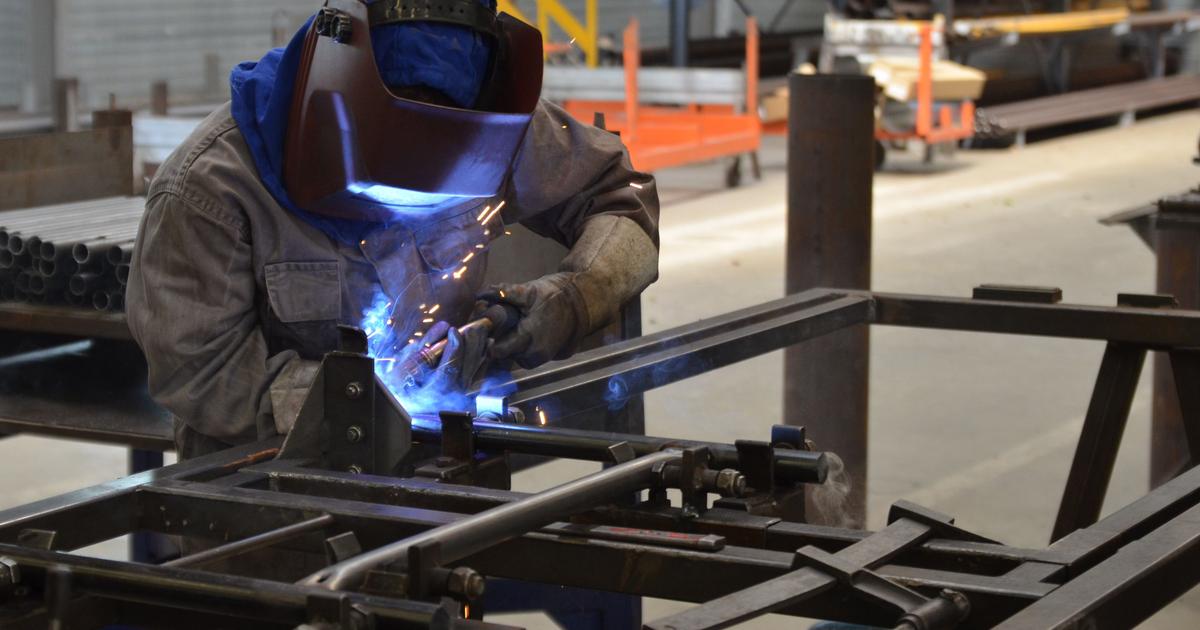Once through the door, a doubt sets in.
The chairs are empty, the patients absent, the calm astonishing.
However, it is one of the largest laboratories in Brest, at the end of Finistère, in the midst of the Covid epidemic.
Is it open?
It is already 8:30 am this Thursday.
"Yes, for an hour, confirms Patricia, the nurse at the reception.
Today is calm.
Usually, we are not overwhelmed but all the niches are taken.
".
Only eight people since opening.
The ninth, Vanessa, a caregiver, with a dry and feverish cough, passes a head, gets tested and leaves immediately with an appointment for her husband the next morning.
Where are the endless lines?
"You will rarely see two or three people waiting," Patricia smiles, relieved to have left Paris, after the first wave, to follow her husband transferred here.
“In the lab, where I worked, we had to hire a security guard.
The queues were so terrible that people were fighting.
"
An exception in France
So this is what screening looks like in Brest, the agglomeration least affected in France by the Covid.
In Finistère, the incidence rate is four times lower than the national average.
Out of 100,000 inhabitants, only 43 have the virus against 107 at the regional level.
And only 34 patients are hospitalized in the city's CHU.
A French exception which can be explained by the geographical location of this department surrounded by water to the west, where the land ends as its name suggests.
"Finistère, which is landlocked, has always been preserved from Covid, even if there have been a few clusters", summarizes Alain Le Tertre, head of the Brittany unit of Public Health France.
Its inhabitants, crossed, sum it up in a formula: “Here, we do not pass, we come there.
“And the figures, which have been falling in recent days, leave you wondering.
Patricia hands us her painting.
On February 6, zero cases, on the 8th, second, on the 9th, only one and on the 10th, still zero out of a hundred daily screenings.
We are far from the 6.1% positivity rate nationally.
READ ALSO>
Health crisis: in Brittany, sea classes are sounding the alarm
A little further away, in her dispensary, Magali has been practicing two antigenic tests a day since December.
For how many positives?
“None,” she said.
The same goes for Benoît, in another pharmacy.
Not a single case out of sixty detected.
And when passers-by are questioned, rare are those who can cite a case of contamination around them.
"A distant uncle in Paris", "a cousin in Marseilles", they say.
“I don't see… Neither my children nor my grandchildren have had the virus,” reflects Marie-Louise, 77 years old.
"And no one in our neighborhood," abounds her husband André, moving away on his crutch.
But that day, what interests the inhabitants, it is rather the unusual snow which started to fall after 9 am on the port city.
Cars hesitate, and the sands of the downtown beach, emerging from the haze, have turned white.
Immediately a few strollers, their caps spangled with flakes, braved the icy cold, admiring this landscape at the end of the world.
A walk prohibited during the first confinement which had really angered the Brestois.
The Parisians ?
"We recognize them immediately, they do not have the mask"
Even alone, along the sea, Loète and Morgane, two friends aged 45 and 36, wear the mask tightly pinched on their noses.
“No matter the place, we always pay attention,” say the girls, bundled up in their down jackets, specifying that this is not the case for everyone, especially Parisians, who are already flocking for the holidays.
"We recognize them immediately, they do not have the mask, deplores Morgane.
Since there isn't too much Covid, they feel like they can do whatever they want.
"
Morning essentials newsletter
A tour of the news to start the day
Subscribe to the newsletterAll newsletters
The caregiver changes his mind, suddenly understanding: “At the same time, it must not be easy to live locked in small apartments.
Despite the low rate of contamination, they do not consider the curfew to be an injustice.
And would be against the rising in Finistère.
"Oh no, we would make people jealous", retorts Loète.
Her friend nods: “Although our businesses are suffering, we are united.
"
A few steps behind, two joggers, Jean-Jacques and Danielle, in their sixties, are also very careful.
"The Bretons are respectful, it is in their character", states the first.
So they adapt like everyone else.
“I'm not for privilege,” Danielle warns, hurrying to the Trimaran to order a steaming coffee.
And even when friends join them in front of the bar-tobacco, it is a meter away that they stand.
Behind the counter, Sophie, the manager and her daughter Karen notice that customers are talking less and less about the virus.
"They wonder when it will all stop," explains the mother.
A regular, worried about variants, gets involved: "Me, I am for closing the borders between the regions," he says, despite the protests.
At All Saints' Day, we saw lots of cars with foreign registrations… Finally, I get along.
" " Oh!
The chauvinist ”, the tackle Sophie.
Laughter in the bar.
"If what he is told to do is reasonable, the Breton obeys"
A little further up the city, Catherine confides her doubts to a trader while he is packing his beef chuck.
His three children and two grandchildren who arrive the next day from the capital will be greeted with a pot-au-feu.
"I'm still afraid that they will bring the virus back, anyway, they are warned, if they have not done their test, they will not come into the house.
The door is therefore open, provided you comply with the rules.
At the market, everyone submits to it, without flinching.
Mask, gel… Christine, deli-caterer, wants the level of contamination to remain low.
"That's why we must respect the measures and the curfew, even if I lose an hour and a half of opening a day, we are not the most to be pitied.
"Moreover, the town hall of Brest confirms it," there is a real respect for barrier gestures and after 6 pm, the streets are deserted.
"
In a city that records few cases of contamination, Youna admits to living far from the reality of the Covid.
LP / Dominique Leroux
If the city does not have a municipal police, a team of ten mediators, who were already working in the public space, is focusing on recalling good practices since the start of the epidemic.
"Your coffee is finished, put the mask back on", "it is badly worn", they repeat pedagogically.
The recalcitrant are rare.
"If what he is told to do is reasonable, the Breton obeys," slips Luc, in his fifties, leaving with a macedonia from Christine.
Behind her vegetable stall, Youna is also not of a protest nature.
Even if she admits to feeling less concerned by the Covid.
Without a case around her, this trader only experiences the epidemic through her restrictions without knowing, she says, the reality of the disease.
“It's like when you see flooding on TV.
As long as you don't have your feet in the water, you don't know what it is.
"



/cloudfront-eu-central-1.images.arcpublishing.com/prisa/OOLBKF5K4VFN7EA7IFFA4PMVUE.jpg)










